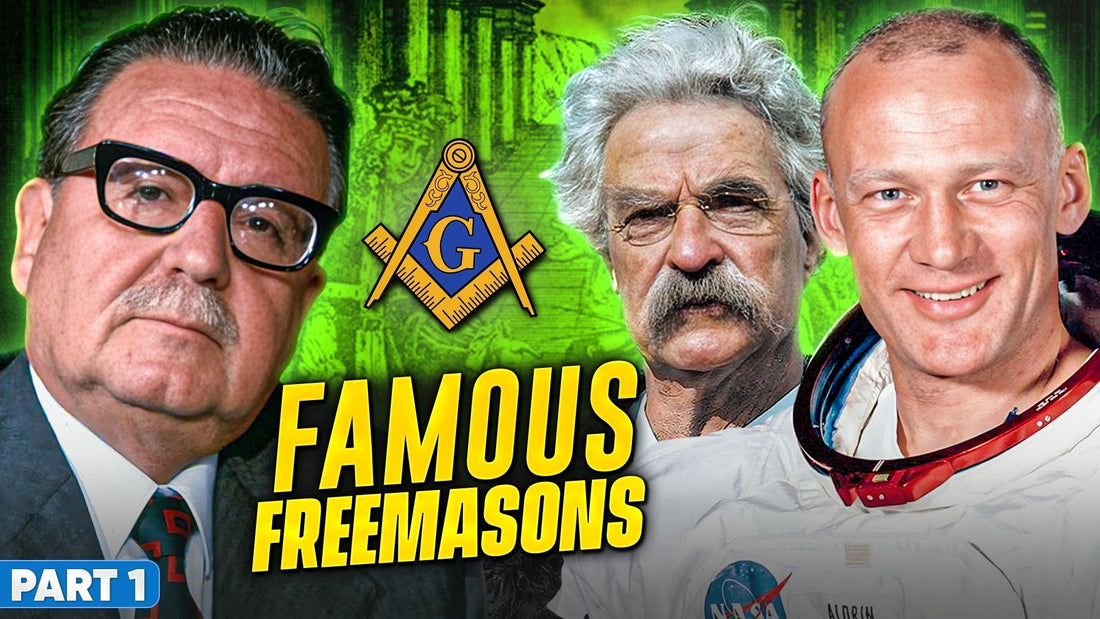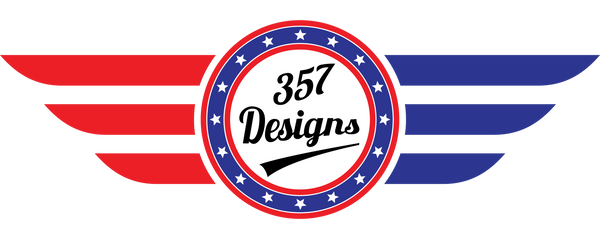
Famous Freemasons Throughout History - Part 1
Share
Famous Freemasons Throughout History – Part 1
Freemasonry's history is a rich tapestry of evolution from medieval stonemason guilds to a modern fraternal organization dedicated to enlightenment ideals. It has influenced significant cultural and political movements, contributed to philanthropy, and faced challenges from various adversaries.
Freemasonry today is a global organization with millions of members worldwide. It operates under a system of Grand Lodges, each sovereign and independent. These Grand Lodges uphold the traditions of the Craft, promote ethical conduct, and engage in charitable work. Modern Freemasonry maintains its historical emphasis on moral and spiritual development, using allegorical teachings based on stonemasonry tools and symbols. Freemasonry has attracted members from various walks of life, including notable figures from politics, literature, science, and entertainment. Here, we’ll delve into the lives of ten famous Freemasons, exploring their contributions to society and their impact on the world.
George Washington:
George Washington, the first President of the United States, is perhaps one of the most famous Freemasons in history. Initiated in 1752, Washington was an active member of the fraternity throughout his life. His commitment to the principles of Freemasonry, such as liberty, equality, and fraternity, is evident in his leadership both on and off the battlefield. Washington's Masonic apron, which he wore during his presidential inauguration, symbolizes his allegiance to the craft and its values.
Benjamin Franklin:
Benjamin Franklin, one of America's Founding Fathers, was not only a statesman, inventor, and author but also a prominent Freemason. Franklin joined the fraternity in 1731 and remained a devoted member until his death. His contributions to Freemasonry include serving as the Grand Master of Pennsylvania and advocating for its principles of enlightenment, tolerance, and moral virtue. Franklin's influence extended beyond the lodge, shaping the ideals of the American Revolution and laying the foundation for the nation's democratic values.
Winston Churchill:
Sir Winston Churchill, the British Prime Minister who led the United Kingdom during World War II, was initiated into Freemasonry in 1901. Although Churchill's Masonic affiliations were not as prominent as his political career, his membership symbolized his belief in the fraternity's principles of brotherhood and service. Churchill's leadership during the war, marked by his resolve and determination, reflected the resilience and strength instilled by his Masonic teachings.
Buzz Aldrin:
Buzz Aldrin, the astronaut who made history as the second human to set foot on the moon during the Apollo 11 mission, is also a Freemason. Aldrin's initiation into Freemasonry occurred in 1961 at Montclair Lodge No. 144 in New Jersey. His journey to the moon not only showcased human achievement but also exemplified the spirit of exploration and discovery espoused by Freemasonry. Aldrin's lunar landing serves as a testament to the fraternity's commitment to pushing the boundaries of knowledge and understanding.
Voltaire:
François-Marie Arouet, known by his pen name Voltaire, was a French Enlightenment writer, philosopher, and advocate of civil liberties. Initiated into Freemasonry in 1778, Voltaire's membership in the fraternity reflected his alignment with its ideals of reason, tolerance, and humanism. His literary works, such as "Candide" and "Letters Concerning the English Nation," challenged prevailing social and religious norms, promoting freedom of thought and expression. Voltaire's influence on the Enlightenment era resonates with Freemasonry's emphasis on intellectual enlightenment and individual liberty.
Mozart:
Wolfgang Amadeus Mozart, the prolific composer of the Classical era, was a Freemason who joined the fraternity in 1784. Mozart's membership in the lodge "Zur Wohltätigkeit" (Charity) in Vienna reflects his appreciation for the fraternity's emphasis on music, art, and fellowship. His Masonic compositions, such as the opera "The Magic Flute," contain symbolic themes of enlightenment, morality, and spiritual transformation. Mozart's musical genius and Masonic allegiances continue to inspire audiences worldwide, bridging the realms of art and philosophy.
Harry Houdini:
Harry Houdini, the legendary magician and escape artist, was initiated into Freemasonry in 1923 at St. Cecile Lodge No. 568 in New York City. Houdini's membership in the fraternity reflected his affinity for its rituals, symbolism, and sense of camaraderie. As a master of illusion and deception, Houdini embodied the principles of secrecy and self-discovery inherent in Freemasonry. His daring feats and theatrical performances captivated audiences, transcending cultural barriers and sparking fascination with the unknown.
Mark Twain:
Samuel Langhorne Clemens, better known by his pen name Mark Twain, was an American writer, humorist, and lecturer who became a Freemason in 1861. Twain's initiation into the craft occurred during his time as a steamboat pilot on the Mississippi River. His literary works, including "The Adventures of Tom Sawyer" and "Adventures of Huckleberry Finn," reflect his wit, satire, and social commentary. Twain's Masonic affiliations underscored his belief in the principles of equality, charity, and mutual aid, which he championed throughout his career.
Simon Bolivar:
Simón Bolívar, the Venezuelan military and political leader who played a central role in the liberation of several South American countries from Spanish rule, was also a Freemason. Bolívar's initiation into Freemasonry occurred in 1803 in Cadiz, Spain, during his European travels. His commitment to the ideals of liberty, independence, and unity mirrored the values espoused by Freemasonry. Bolívar's legacy as the "Liberator" of Latin America symbolizes the triumph of freedom over oppression and the enduring quest for self-determination.
Salvador Allende:
Salvador Allende, the former President of Chile and a prominent socialist leader, was a Freemason who joined the fraternity in 1935. Allende's initiation into Freemasonry occurred during his early political career, where he advocated for social justice, workers' rights, and democratic reforms. His presidency, marked by his commitment to progressive policies and economic equality, culminated in his tragic death during a military coup in 1973. Allende's legacy as a champion of the people resonates with Freemasonry's principles of solidarity, compassion, and human dignity.
These ten individuals, spanning different eras and regions, exemplify the diversity and influence of Freemasonry on society. From political leaders and intellectuals to artists and adventurers, their membership in the fraternity underscores the enduring appeal of its principles and teachings. Whether through acts of leadership, creativity, or social activism, these famous Freemasons have left an indelible mark on history, shaping the world in profound and lasting ways. The legacies of these great men will continue to live on. Part two of our famous Freemasons throughout history series will be coming soon.
